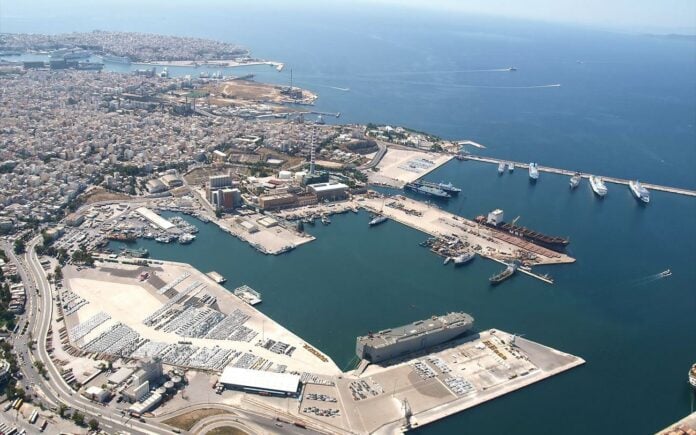By A. Tsimplakis
[email protected]
The Cosco-managed Piraeus Port Authority (PPA) is now reportedly falling back on three options to react against the latest – and very prominent – obstacle placed before its master plan investments, following a decision by the culture-affiliated Central Archaeological Council on Tuesday to declare two-fifths of the municipality of Piraeus as an “archaeological zone”.
The accompanying stricter conditions for land uses and new construction, for instance, add more layers of bureaucratic red tape that the PPA must overcome to build a new shopping mall and luxury hotel within the port premises, for instance, or operate a massive dry dock (300,000 ton) at the industrial Psyttalia site. Additionally, extending the archaeological zones offshore raises questions over whether the state bureaucracy, KAS in this case, will even interfere with dredging off the passenger port of Piraeus.
Beyond the state-appointed archaeologists and academics on serving on the KAS council, the Chinese multinational’s intent to build a 12-hectare logistics center in the adjacent Keratsini municipality faces opposition by a shipping ministry-affiliated committee, while legal challenges are due to be heard by the Council of State (CoS) over the contract to build a new Commission-financed cruise ship terminal and a request to operate a shipyard.
The first of three options on PPA’s table, one reportedly backed by Greece’s memorandum-mandated privatization agency (HRADF), is to again submit its draft master plan to the shipping ministry commission, officially called the Port Planning and Development Committee. The argument is that PPA’s management will now accompany the new submission with detailed responses to all of the committee’s previous observations last month.
At the same time, reports have the PPA scrutinizing the legal authorization cited by the committee – one entity within the state sector – to refer the draft master plan to KAS – another state-affiliated entity – for its approval.
Another option is to seek recourse to the Council of State and request the cancellation of the KAS decision. Finally, a third option is recourse to arbitration, whereby Cosco will activate its option to purchase another 16 percent of the Piraeus Port Authority’s shares – it already controls a majority 51-percent stake – regardless of the progress of proposed projects. Cosco would then maintain that delays in implementing the master plan are not its responsibility.
In a carefully worded response aimed to strike a balance between the KAS decision and expected negative fallout over yet another strategic investment in Greece falling prey to proverbial modern Greek “red tape” and interference, the culture ministry merely said that KAS members approved the obligatory investments in the PPA concession contract. The ministry also claimed that the KAS decision was favorable to the non-obligatory investments, but merely placed “restrictions on uses and the size of constructions, while accepting the opinion ESAL (the shipping ministry committee), in order to ensure the protection and promotion of significant antiquities that are located within the onshore port zone and in direct proximity with it.”
One of the first international reactions to the decision came on Wednesday, with a dispatch from Athens by the Wall Street Journal, in a story headlined: China’s Biggest Investment in Greece Blocked by Archaeological Authority: Bureaucratic ruling stymies projects of Chinese shipping company Cosco at port of Piraeus.”
WSJ notes that “…One of China’s biggest investments in Europe suffered a major setback after Greek bureaucrats declared much of a port a Chinese state-run company has bought into to be of archaeological interest, likely delaying a key Chinese infrastructure project.”














